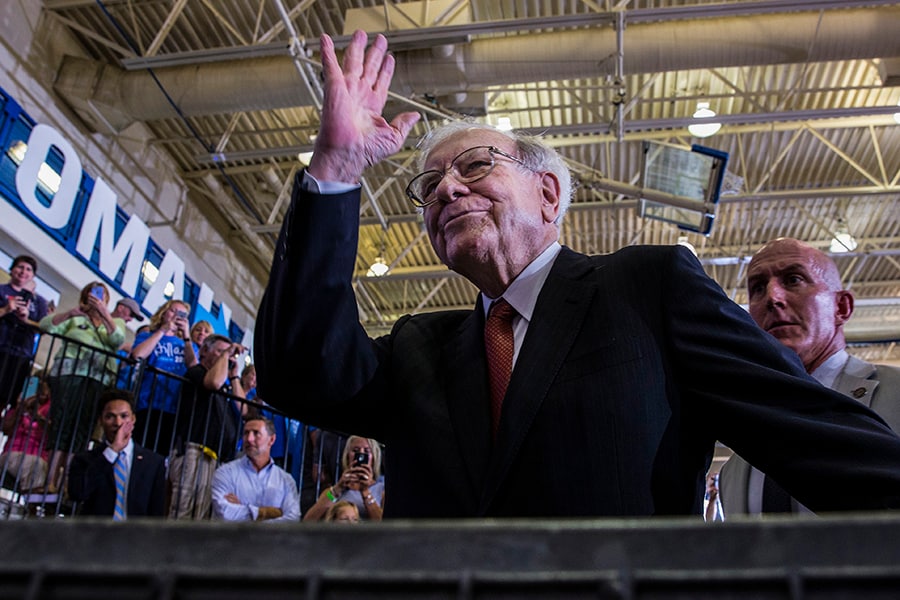
Warren Buffett's exit from the Gates Foundation clouds its future
Buffett had been a huge contributor to the Gates Foundation, one of the foremost and richest nonprofit organisations dedicated to social causes, for more than a decade
 Warren Buffett, the head of Berkshire Hathaway, at a campaign event for Hillary Clinton in Omaha, Neb., Aug. 1, 2016. Warren Buffett, the chairman and chief executive of Berkshire Hathaway, said on Wednesday, June 23, 2021, that he had resigned as a trustee of the Bill and Melinda Gates Foundation, weeks after the couple announced their divorce. Image: Ruth Fremson/The New York Times
Warren Buffett, the head of Berkshire Hathaway, at a campaign event for Hillary Clinton in Omaha, Neb., Aug. 1, 2016. Warren Buffett, the chairman and chief executive of Berkshire Hathaway, said on Wednesday, June 23, 2021, that he had resigned as a trustee of the Bill and Melinda Gates Foundation, weeks after the couple announced their divorce. Image: Ruth Fremson/The New York Times
Warren Buffett, the chairman and chief executive of Berkshire Hathaway, said on Wednesday that he had resigned as a trustee of the Bill and Melinda Gates Foundation, coming just weeks after the couple announced their divorce and raising new questions about the future of the foundation.
Buffett had been a huge contributor to the Gates Foundation, one of the foremost and richest nonprofit organizations dedicated to social causes, for more than a decade. It is one of five nonprofit organizations to which he has pledged the majority of his fortune, which Forbes estimates at $105.3 billion, and it is the only one not run by a member of the Buffett family.
All told, Buffett, 90, has given Berkshire stock worth $41 billion at the time of donation to the five foundations. In 2006, he committed to giving about $31 billion to the Gates Foundation. In the announcement Wednesday, Buffett said he had donated an additional $4.1 billion to philanthropy, with $3.2 billion going to the Gates Foundation.
“For years I have been a trustee — an inactive trustee at that — of only one recipient of my funds, the Bill and Melinda Gates Foundation,” Buffett said in a statement. “I am now resigning from that post, just as I have done at all corporate boards other than Berkshire’s.”
With 1,600 staff members directing $5 billion in annual grants to 135 countries, the Gates Foundation is a powerful institution, especially in the field of global public health. Yet the foundation has only three trustees — Buffett, Gates and Melinda French Gates — and Buffett’s departure comes at an uncertain time for the foundation.
©2019 New York Times News Service







